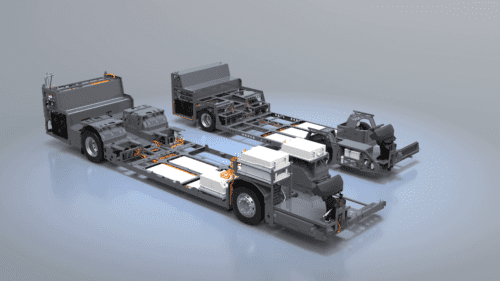
With safety always in the minds of the travelling public, Jonathan Welch takes a look at how manufacturers ensure safety on electric buses
There were a number of cases earlier this year and in previous years of bus fires, some involving diesel buses, some hybrid and some electric, but all of which garnered much attention on social media, some incorrectly labelling it as an electric bus fire, or suggesting the fault was with the traction battery system when in fact it was a component common to all fuel types. Regardless, where the adoption of a relatively new technology is involved, it only takes one incident to seriously harm the reputation of a product or vehicle type, even where the vehicle itself is not at fault.
The electric bus market is growing, and not just in the UK. Europe-wide, figures compiled by Chatrou CME Solutions showed a 53% growth in electric bus registrations in 2023, with over 6,300 entering service. In India, the electric bus market is rapidly growing, with over 7,700 electric buses operational by early 2024, up from just three in 2015. That figure is expected to increase fivefold in the next two to three years.
Worldwide, research by Australia’s EV FireSafe found at least 27 verifiable e-bus high voltage battery fires globally between 2010 and January 2024, in a stock of over 250,000 vehicles.
With that in mind, and noting some of the concerns (real and hyperbolic) raised on social media channels, we asked some of the major ‘big bus’ manufacturers in the UK how they deal with the issue.
Safety in mind
We first spoke to Alexander Dennis. The company describes itself as ‘agnostic’ when it comes to battery type, and uses NMC (Nickel Manganese Cobalt) chemistry on its Enviro100EV and Enviro400Ev products, and LFP (lithium iron phosphate) batteries on its Enviro200EV, selecting what it says is the best solution for each use case. The former tend to have a higher energy density, making them more suited to applications where space is tight, such as a double-decker or small bus.
[…]
By subscribing you will benefit from:
- Operator & Supplier Profiles
- Face-to-Face Interviews
- Lastest News
- Test Drives and Reviews
- Legal Updates
- Route Focus
- Industry Insider Opinions
- Passenger Perspective
- Vehicle Launches
- and much more!


